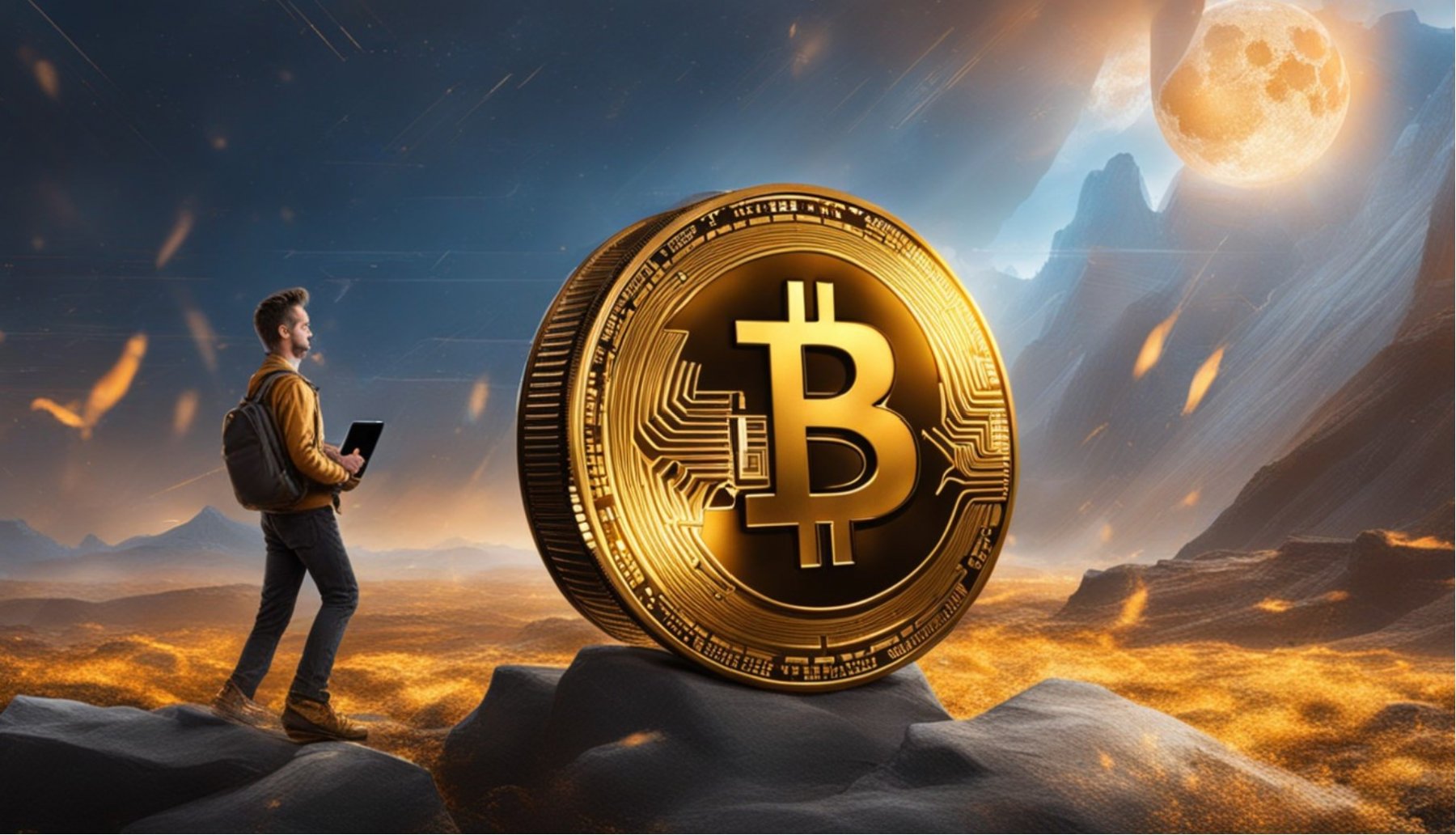Cryptocurrency value - where does cryptocurrency value come from

It's been said by people who don't like or understand the crypto market times and times over that cryptocurrencies don't hold any value. It's not like stocks you buy - with cryptocurrencies you won't own the company behind the cryptocurrency. So do cryptocurrencies hold any value at all? And if they do, where does its value come from?
Before diving deeper into the subject, let's make couple of things clear.
Firstly, cryptocurrencies do have value. The value is given to the cryptocurrencies, as it's the case with any other currency, by its users. And the value depends on supply and demand.
Cryptocurrency has value, because people value it. The value comes from our shared belief in the cryptocurrency, the shared wish to own it, the shared wish to use it.
However, unlike traditional currencies issued by central banks and backed by governments, the inflation rates, monetary policies, etc do not influence cryptocurrencies (that much).
Cryptocurrency - what is it?
While cryptocurrencies can be used similarly as fiat currencies and be used to buy and sell goods or services, or used as investment products, they act more like an asset class than a currency. Although the idea behind cryptocurrencies is to change all that.
Where does the value of regular currencies come from?
Regular currencies, or fiat money, get their value from supply and demand, and they are backed by the issuing government. And the value is obviously connected to the creditworthiness of that government, that country.
Supply and demand of a currency is influenced by many different factors. Just to name a few - inflation, interest rates, capital flow, money supply.
Where does cryptocurrency get its value from?
While supply and demand remains the same, the value of a cryptocurrency comes from various other factors as well. All (and possibly more) of the factors brought out below together help determine the cryptocurrency's worth.
Supply and demand
This should be quite easy to understand and can be compared to anything. If the demand is higher than the supply, the price increases. If you want, take milk as an example - if there are more people who want to buy milk than the farmers can provide, the price of the milk goes up. Same applies when the farmers see that the demand doesn't seem to decrease in case the price goes up - this means that it's possible to sell it at a premium because the demand is still there.
Supply and demand when it comes to cryptocurrencies is pretty much the same.
For example, back in 2021 institutional investors joined the 'cryptosphere' and the demand for Bitcoin became higher than the pace at which new Bitcoins were mined. This increased the price because the demand was higher than the supply.
So the value of Bitcoin (BTC) as well as altcoins is determined by the simple principles of supply and demand.
Practical applications / utility of the cryptocurrency
If a crypto has some actual practical applications, it increases its potential. Utility also increases whenever more businesses start accepting the cryptocurrency, or if it looks like a great investment opportunity.
The more some cryptocurrency can be used for...whatever, the higher more practical value it has, and the more potential again.
Imagine a small store vs a large store which are both offering their gift card. Obviously the gift card of the bigger store has more utility, and thus, more growth potential.
But what does crypto utility mean in the first place? In most simple terms, if a crypto is useful to someone, it could be considered as having utility. And that gives it value.

Supply / scarcity
Most cryptocurrencies (although not all) have only a limited supply. For example Bitcoin has a limited supply of 21 million Bitcoins. If the demands goes up, the (maximum) supply still stays the same. As such, the price has nowhere to move than up.
Many of the cryptocurrencies with unlimited supply still have mechanisms in place to make sure that their supply never gets too big.
This is done by burning X amount of the cryptocurrency every once in a while.
What does burning mean in this case?
Burning means that the X amount of the cryptocurrency's supply is transferred into an unrecoverable address on the blockchain.
So let's say the farmer has 10 tons of milk, but people knowing that feel the price of the milk is too high, considering the overwhelming supply. As a response to that the farmer pours 2 tons of it down the drain, and by doing that limiting the current supply.
Adoption
The more utility the cryptocurrency has, the more potential value it holds. And the easier it is for it to gain traction. It becomes better known, it gains users, businesses start using it for one thing or another.
For the market to adopt a cryptocurrency, it really does need to offer some practical applications. Although, as we all know, also a memecoin with a good influencer can often reach the sky.
Market Sentiment and external influences
Compared to stock market, crypto market has a lot more individual buyers. That also means that media or social media coverage of the crypto can have a massive effect sometimes.
Positive or negative.
Media attention can also cause very, very high volatility at times, very high, and sudden, price fluctuations.
Liquidity
What is liquidity? In essence it says whether it's easy to buy or sell the cryptocurrency without causing a huge price change in the market. So for that you want a cryptocurrency to have high liquidity. It helps with price stability, it attracts more investors with more money, it often means lower transaction fees as well as helps with trust or market confidence in the currency.
While crypto market is extremely volatile from the get-go, cryptos with strong liquidity fluctuate less and offer more price stability.
Regulatory environment
Cryptocurrencies are still sort of gray area when it comes to regulation part. Most countries who have regulated and taxed it, still don't seem to understand what cryptocurrencies are and how they work.
Even in the United States SEC (The Securities and Exchange Commission) considers cryptocurrencies securities like stocks. At the same time CFTC (Commodity Futures Trading Commission) says cryptos are goods, like gold.
Regulation or the lack of it, both of them can have both positive and negative effect on the crypto when it comes to its valuation. The reason for that is simple - while some investors prefer the simplicity the lack of regulation provides, others investors might actually be afraid of investing in it because of it.
Crypto regulation can influence the price of crypto a lot, and in different ways. By regulating it well, and making it more accessible, it can help cryptocurrencies become more popular and as such, increase their value. On the other hand, regulatory bodies not knowing how cryptos work, and how they could/should be taxed, can also cause the opposite effect.
In some countries all winning trades are taxed while you can't write off your losses from other crypto trades. Which means that in theory, by the end of the year, you could end up owing more money in taxes than all of your cryptos together are currently worth.
But that's already a totally different topic, so let's move on.
Macroeconomic Trends
Crypto market in general is closely tied with macroeconomic trends.
What does it mean?
While cryptocurrency price movements used to be somewhat separate from the wider financial markets, it's not an isolated asset class any more.
Global events can influence crypto prices (think Covid, think global tensions).
Those events can either strengthen or weaken the crypto market. It comes as crypto market is maturing and becoming more accessible, especially with the increasing involvement of big institutional investors (initially crypto was mainly traded by individuals).
In addition to global events, also regulatory decisions can influence the direction of crypto market a lot. For example hike in interest rates can lower Bitcoin price.
Community
Cryptocurrencies allow capturing the value of communities, and make it possible to compensate the community members for their contributions. Those same community members at the same time become a leading force to promote the cryptocurrency. Think of miner rewards for Bitcoin or staking rewards for different other coins.
I read another article which mentioned Facebook, and how they use their community by pretty much selling your data as a product and make money on it.
People do not like that.
And cryptocurrency tokens offer a way better way of sharing the value the community creates inside that same community. And then the value of the blockchain tokens is the perceived value of that community to the members.
In the future you can bet that more and more people choose to stay away from communities built to just take advantage of you, and rather contribute in communities that give something back, and make you a default 'shareholder'.

Availability on currency exchanges
The value of a cryptocurrency depends a lot also on the fact how available the cryptocurrency is.
Is it available on the biggest cryptocurrency exchanges? How many exchanges have listed the cryptocurrency?
If you can't buy the cryptocurrency in many places, then obviously it's difficult for the crypto to take off, unless there's a pump & dump scheme taking place.
It's sort of the same as with stocks listed in Nasdaq, NYSE, etc - if a major stock is not available there, it doesn't allow the price to grow that much. Same applies to cryptocurrencies - if it isn't listed on Binance or Coinbase, their trading volumes and demand is likely to be not very high. So it's important for crypto projects to get listed in high volume crypto exchanges.
So the popularity of exchanges the crypto is listed on has considerable effect towards whether the crypto can become more popular or not.
Something else to mention - smaller tokens with less availability and lower trading volume on less popular exchanges can deter investors because of the substantial spreads in the price (spread is the difference between the price you can sell the currency for, and the price you can buy it for).
Competition
The more unique a cryptocurrency is, the better potential for growth it has. If the competition is tough, meaning if there are many different cryptocurrencies with the same utility, the harder it is for the price to grow.
If at the time the cryptocurrency is created, there are no contenders, it fairly easy for the price to grow. But the moment it has a serious competition in form of a competing cryptocurrency that offers some practical utility the first one didn't have, the new one will start gaining traction instead and divert value from the other one.
Production Expense
This doesn't necessarily apply to all cryptocurrencies, but for those that are generated through mining (validating blockchain blocks), the value of cryptocurrency can also be dependent on mining costs. That's because the miners receive tokens as well as transaction fees for their efforts and these efforts cost money (computers, energy bills). The higher the complexity of the work that needs to be done by the computers, the longer it takes, the more it costs. And the miners need the cryptocurrency price to be enough to at least cover their expenses.
For example, at the moment the cost to mine one Bitcoin is roughly 18 000 euros.
Economic indicators
I want to keep this crypto price guide, or crypto value guide, whatever you want to call it, as simple as possible, and I don't really want to go into topics that require extra research from your side, but I will just mention a few metrics that can be used to figure out values of cryptocurrencies.
- Price-to-Sales Ratio - financial metric to assess how the protocol value aligns with its revenue. Calculated by dividing the fully diluted market capitalization by its annualized revenue. Helps gain knowledge about the growth potential and sustainability.
- Price-to-Earnings Ratio (P/E) - financial metrics to assess how the market capitalization relates to the income. Calculated by dividing the market capitalization by the yearly protocol revenue (derived from the 30-day revenue).
- Market Cap to TVL - metric that offers insights into how the market value and its alignment with the protocol's actual usage. Shows the assets actual worth. Calculation is based on the protocol's practical application.
- Network value to Transaction Ratio (NVT) - metric that helps evaluate the market capitalization and the transaction activity. Calculated by dividing the crypto's market cap by its 24-hour transaction volume.
- Market Value by Realized Value (MVRV) - metric that helps assess whether the cryptocurrency is below or above its "fair value". Calculated by dividing the cryptocurrency's market cap by its realized capitalization.
So how does cryptocurrency gain value?
As you just read, the value of any cryptocurrency depends on many, very many factors, and at one point or another, the price of a cryptocurrency might move a lot just because one of the them moved it, other times it's the combination of all of them.
Are stocks and cryptocurrencies the same in terms of value generation?
When it comes to stock market, any company's worth is dependent on market capitalization. This is based on multiplying stock price by the number of company shares.
The higher the demand for the shares, the higher the stock prices go.
In that sense stocks and cryptocurrencies are the same - the higher the demand, the higher the price. If there are more people willing to buy than people who want to sell it, the more the price will go up. The same theory applies to both - stocks, and cryptocurrencies.
The difference between the two, however, is that while owning a stock means you own a small piece of the company, owning cryptocurrency does not mean that you own any part of the company that created it. Cryptocurrency is more like EUR or USD, so you just own the currency.
Another difference between the two is the fact that in case of stocks, the company can always issue more shares which lowers your ownership percentage in the company. Most cryptocurrencies, on the other hand, have a limited supply. Once this supply is exhausted, no more tokens can be created.
Of course, cryptos with unlimited supply is another story.
The value of anything comes from the same place
Where does crypto get its value? By the end of the day there's no mystery to it - independent of whether we are talking about cryptocurrencies or any other financial product. If me, you, and all of our friends agree that something is valuable, it becomes valuable for us. If enough people we don't know agrees with us, it becomes even more valuable.
It's the same way how artwork is valued. If only you desire that one specific piece of art, you can get it for a price of beer. However, if a lot of people think the same, the price can grow and end up costing you an arm and a leg.
Most, if not all value in economy is created based on the same simple principle.
Before you go, let's list some characteristics of a good cryptocurrency once more in a slightly different manner:
- Popularity/recognizability: The more people know about it and accept it, the higher the cryptocurrency value is.
- Durability: It's there to stay, can be used now, and in the future. So it needs to have a long lifespan.
- Portability: It can be used anywhere in the world.
- Usability: It can be used easily.
- Utility: It can be used for something.
- Fungibility/uniformity: Each unit of the crypto is identical to another unit of the same crypto.
- Scarcity: It's best if it has only limited supply, or its internal mechanics make it so on the go (i.e. frequent burning)
- Acceptability: People must accept it as it is


